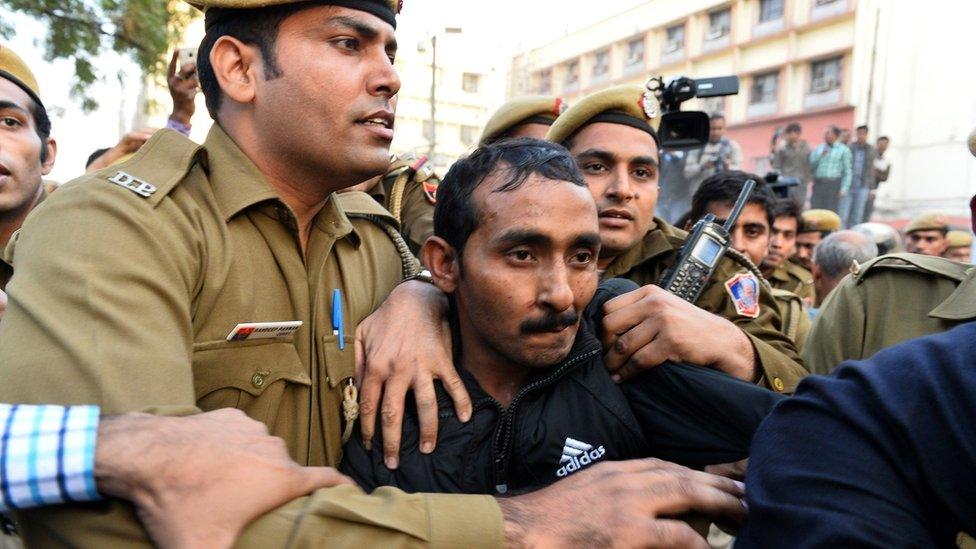Uber 'obtained rape victim's medical records'
- Published

Shiv Kumar Yadav was sentenced to life in prison
An Uber executive obtained the medical records of a woman who said she was raped by a driver of the taxi-app firm in India, according to a report, external.
Eric Alexander, who ran Uber's business in Asia, is said to have shared the records with the company's chief executive, Travis Kalanick, over a year ago.
Uber confirmed to the BBC that Mr Alexander no longer worked at the firm - but offered no further comment.
Technology news site Recode said Mr Alexander was fired only after the publication contacted the company about the story.
It said as well as Mr Kalanick, the records were seen by the company's senior vice president, Emil Michael.
Recode's report detailed how Uber was reportedly considering the prospect that the rape claim was concocted by rival Indian ride-sharing company, Ola, as part of a smear campaign.
On Thursday, Ola told the BBC's Shilpa Kannan the allegations were "despicable".
"It is a shame that the privacy and morals of a woman have to be questioned in an attempt to trivialise a horrific crime," a spokesman for Ola said in an email.
"It is despicable that anyone can even conceive an attempt to malign competition using this as an opportunity. If this report were to be even remotely true, this is an all time low on morality and a reflection of the very character of an organisation."
The news is the latest in a series of high-profile scandals greatly affecting Uber's reputation. On Tuesday, the company announced it had fired 20 employees as part of an investigation into sexual harassment and other misconduct at the company.
Delhi ban
In December 2014, a 26-year-old Delhi woman was raped by Uber driver Shiv Kumar Yadav. Yadav was sentenced to life in prison.
At the time Uber said "sexual assault is a terrible crime and we're pleased he has now been brought to justice", adding it had improved security due to "lessons we learned from this awful case".
But the ride-sharing service was consequently banned from operating in Delhi (the ban was lifted in June 2015).
Behind the scenes, Uber executives reportedly doubted the authenticity of the woman's claim, and questioned whether Ola, an Uber competitor in India, was behind the incident as part of a sabotage attempt.
As well as the criminal case, the woman sued Uber. It was settled out of court.
___________
Follow Dave Lee on Twitter @DaveLeeBBC, external
You can reach Dave securely through encrypted messaging app Signal on: +1 (628) 400-7370
- Published7 June 2017

- Published25 February 2017